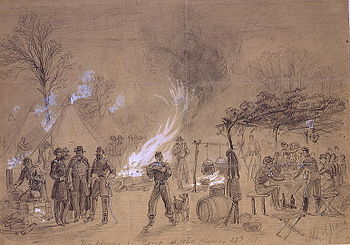
Like it or not, these days the reason for the season seems to mostly be: Shopping. Even if you weren’t among the millions lining up outside brick and mortar establishments on “Black Friday,” you’ve probably got your eyes peeled for holiday deals on the web.
The hottest bargains this year come with microphones and the promise that those microphones will put the world at your beck and call.
Amazon’s Alexa-powered line of devices and Google’s new Home appliance augur an increasingly voice-powered world. Adjust your thermostat, turn on the lights, pull up the movie you want to watch or the music you want to listen to, order a pizza — all by just saying it. Our phones have been conditioning us to that paradigm for several years. This is what’s next.
No, I don’t want to crush the buzz or put you off the idea. I’m in. I run an Android phone digital assistant app that listens for my voice command, and just grabbed up a Cyber Monday deal at Amazon myself ($29.99 for the Alexa-enabled Fire TV stick with voice remote — one reason I went that way is that it supposedly requires a button push to activate the mic instead of being “always on”).
But if you’re going the voice-controlled home appliance route, ask yourself one important question: Who’s listening, and how much are you comfortable with them knowing?
Ten years ago, you’d likely have considered that question an example of paranoid conspiracy theory. But unless you live under a rock, you’ve heard of Edward Snowden by now and have come to understand that yes, governments really HAVE been hoovering up our phone and Internet data for years. Does anyone really expect that home microphones won’t become part of the continuously expanding surveillance state?
Governments aren’t the only bad actors — over the last couple of years we’ve seen hackers compromise everything from baby monitor webcams to automotive computer systems — but governments are undoubtedly more dangerous than assorted pranksters, stalkers and thieves in cyberspace just as they are in the real world. In the not too distant future, police may be automatically dispatched to your home based on one of your devices hearing something a computer program interprets as a domestic dispute — or a seditious conspiracy.
By all means, get your voice groove on at a discount. But when it comes to electronic ears, be sure you keep your eyes open.
Thomas L. Knapp (Twitter: @thomaslknapp) is director and senior news analyst at the William Lloyd Garrison Center for Libertarian Advocacy Journalism (thegarrisoncenter.org). He lives and works in north central Florida.
PUBLICATION/CITATION HISTORY
- “The End of Privacy is on Sale, and We’re Buying,” by Thomas L. Knapp, CounterPunch, 11/25/16
- “The end of privacy is on sale, and we’re buying,” by Thomas L. Knapp, New Haven Connecticut Register [web and print editions], 11/26/16
- “The end of privacy is on sale, and we’re buying,” by Thomas L. Knapp, University of New Mexico Daily Lobo, 11/27/16
- “The End of Privacy is on Sale, and We’re Buying,” by Thomas L. Knapp, Santiago, Chile Times, 11/28/16
- “The End of Privacy is on Sale, and We’re Buying,” by Thomas L. Knapp, OpEdNews, 11/30/16
- “End of privacy on sale, and we’re buying,” by Thomas L. Knapp, Bucks County, Pennsylvania Courier Times, 12/02/16
- “The end of privacy is on sale, and we’re buying,” by Thomas L. Knapp, Marietta, Georgia Daily Journal, 12/02/16


